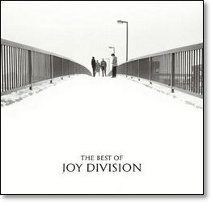#^d 2014-08-25
#^h Music Week
Music: Current count 23701 [23658] rated (+43), 530 [536] unrated (-6).
Was surprised to see rated count over 40, then looked closer and the
subtraction result turned out to be an impossible 143. Looks like I slipped
a digit two weeks ago. That was about when I had an editing accident and
lost several hundred grades, sending me into a panic trying to figure out
how to fix the breach. This seems to be the summer of things breaking --
I still figure that's better than the summers of mysterious lung diseases
a few years back. Thinking about it, the 43 count means I've been listening
to more Rhapsody, which I'll explain by last week's oversized
Streamnotes plus the
fact that my
pending queue is nearly dry
(18 new 2014 records, or 10 not counting this week's unpacking).
I can remember days when I had more than 100 unrated in the queue.
I still have some items from previous years I haven't gotten to
(although only 1 of those was from 2013, a piece of vinyl I should
look for), so we're talking real low priority stuff. No wonder my
eye is wandering.
This year I decided not to do my
all-consuming metacritic file
(link is to 2013), but needing some kind of aide de memoire I've kept
a running list of albums considered noteworthy and assigned priorities
to them to give me something to work with. Recently, it looked like
this, but since I was weeding out albums
once I had heard them, it was pretty much useless for anyone else. So
it occurred to me that it would be better to keep those records in,
and for that matter to add my grades (where available). The combined
file now looks like
this. I've added some options to
select based on priority levels, so you can get the old format
like this if you have any
reason to do so. There's also an option to get an
even bigger file with all
the "priority 0" records I've noted -- everything mentioned in AMG's
weekly featured releases gets noted in the data file, even if I
consider it to be of no interest whatsoever. Currently the data
file lists 1644 records. Since last year's metacritic files ran to
(7868+1100) records, I haven't been looking very hard. But as my
queue drains I'll work on that some more. (I especially want to
beef up the jazz listings.)
I fell behind on
Twitter, wound up having
to knock out nine tweets to wrap this up. Even so, I skipped a few
of the "old music" albums -- they'll show up next Rhapsody Streamnotes,
although you can check out Michael Tatum for Joy Division, below.
Wrote one tweet for Jeff Palmer -- an organ player in my database
I had no other consciousness of -- but played two albums, both good,
but when you trade in Victor Lewis (a drummer I revere) for Rashied
Ali you get an extra spark.
Speaking of Twitter, I retwitted one from Mike Konczal last night:
Sad that Michael Katz has passed away. A remarkable scholar, very
important to me. Read Tom Sugrue's moving tribute:
[link]
I added my own two cents:
Let me add that Michael Katz's history of the early school reform
movement as class thought control/socialization was a key insight to
me.
Katz wrote a lot of books, but the only ones I read were The Irony
of Early School Reform: Educational Innovation in Mid-Nineteenth Century
Massachusetts (1968; reissued 2001), and Class, Bureaucracy, and
Schools: The Illusion of Educational Change in America (1971; expanded
1975). He found that the early proponents of universal education like
Horace Mann -- a name we knew because Wichita named a school for him --
were less concerned with offerng opportunities to Irish immigrants than
with socializing them in proper New England ways, and conversely that
the Irish resisted such efforts to brainwash them. I read these books
when I was a high school dropout with my own intense distrust of an
educational system that seemed geared to turn us into regimented factory
workers (if we survived the army and Vietnam).
Katz later moved on to write about America's welfare system, in books
like In the Shadow of the Poorhouse: A Social History of Welfare in
America (1986; expanded 1996), The Undeserving Poor: From the
War on Poverty to the War on Welfare (1990), and Improving Poor
People: The Welfare State, the "Underclass," and Urban Schools as
History (1995), and more recently has published on immigration.
Most recently, he wrote Why Don't American Cities Burn? (2011),
about a murder in Philadelphia and all the attendant baggage of race
and class. I hadn't thought much about Katz until The Undeserving
Poor showed up in one of my recent book trawls. Interesting how
his career developed. For more, see this
In Memoriam by Thomas Sugrue (whose own books include The
Origins of the Urban Crisis: Race and Inequality in Postwar Detroit
(2005), Sweet Land of Liberty: The Forgotten Struggle for Civil
Rights in the North (2008), and Not Even Past: Barack Obama
and the Burden of Race).
One more Twitter note, or at least semi-related. Medium is either
a spinoff or an independent venture funded with Twitter money -- I
don't pretend to understand how it works, but I have heard that they
have some money to hire writers, and have hired Robert Christgau to
write some Expert Witness/Consumer Guide posts. He has an account now
that you can follow. He'll
explain it all in an introductory post on September 2, followed by
the first actual CG reviews on September 5.
Recommended music links:
New records rated this week:
- Auction Project: Slink (2014, self-released): violinist Heather Martin Bixler outshines the leaders, offering shape and substance to the usual postbop [cd]: B+(*)
- Henry Butler/Steven Bernstein: Viper's Drag (2014, Impulse): band named Hot 9 after Armstrong-Hines, comparisons neither can live up to [r]: B+(***)
- Calle 13: MultiViral (2014, El Abismo/Sony Music Latin): Puerto Rican rappers with a political agenda, unintelligible to folks like me, but at least I feel it [r]: B+(***)
- Brian Eno/Karl Hyde: Someday World (2014, Warp): Eno teams up with an inferior singer, so he tries to compensate by writing better songs [r]: B+(*)
- Dave "Knife" Fabris: Lettuce Prey (2010 [2014], Musea): guitarist into fusion and classical but also makes room for Ran Blake to do his thing [cd]: B-
- Simone Felice: Strangers (2014, Dualtone): one of the Felice Brothers tries his hand solo, forsaking those nice harmonies [r]: B+(*)
- The Felice Brothers: Favorite Waitress (2014, Dualtone): minus Simone, turns out they have more fun and edge, even a taste for mayhem [r]: B+(***)
- FKA Twigs: LP1 (2014, Young Turks): the sort of singer Tricky uses, OK as long as she comes up with music on that level, which isn't often [r]: B
- Hercules & Love Affair: The Feast of the Broken Heart (2014, Moshi Moshi): EDM, a bit slow, cartoonish even, but that's their shtick, isn't it? [r]: B
- Jessica Hernandez & the Deltas: Secret Evil (2014, Instant): Detroit group, straight rock & roll with a slight vocal skew, distinctive I'd say [r]: B+(***)
- Darius Jones/Matthew Shipp: Cosmic Lieder: The Darkseid Recital (2011-13 [2014], AUM Fidelity): dense piano chords slow the saxman down, for better or worse [r]: B+(*)
- Dr. John: Ske-Dat-De-Dat: The Spirit of Satch (2013 [2014], Concord): a Louis Armstrong tribute that misses its mark on so many levels I never conceived possible before [r]: C
- Roddy Frame: Seven Dials (2014, AED): singer-songwriter from Aztec Camera, 15 years into a solo career has pop charms but no more dazzle [r]: B+(*)
- Phil Haynes: No Fast Food: In Concert (2012 [2014], Corner Store Jazz, 2CD): drummer-led trio with Dave Liebman and Drew Gress, all sharp edges for two live discs [cd]: B+(***)
- Wayne Horvitz: 55: Music and Dance in Concrete (2012 [2014], Cuneiform): i.e., immobile: no swing, no bop, no hop, no strut, just fairly rich chamber jazz [cdr]: B
- Rebecca Kilgore with the Harry Allen Quartet: I Like Men (2013 [2014], Arbors): title concept could use sharper songs, saxophonist could use more space [r]: B+(*)
- Ricardo Lemvo/Makina Loca: La Rumba Soyo (2014, Cumbancha): Congolese star draws big beats and brass from salsa, supercharged with soukous guitar [r]: A-
- John McLaughlin & 4th Dimension: The Boston Record (2013 [2014], Abstract Logix): as the fusion guitarist ages, he eschews transcendence for hard and clunky [r]: B
- Hafez Modirzadeh: In Convergence Liberation (2011 [2014], Pi): George Russell student, explores high concepts with approaches I rarely care for [cd]: B+(**)
- Myriad 3: The Where (2014, ALMA): Canadian piano trio, hits a semi-popular niche like EST even if they aren't the influence [cd]: B+(**)
- Novox: Over the Honeymoon (2014, Label Z Production): French septet with fake funk horns, synths, turntablist, guitarist leader, vocal clutter [cd]: C+
- Picastro: You (2014, Sonic Clang): intriguing little group, basically slowcore with falsetto vocals, fractured and crazed around the edges [r]: B+(*)
- Pink Martini & the Von Trapps: Dream a Little Dream (2013 [2014], Heinz): the extra voices add a somber air, belying camp eclecticism from Brahms to ABBA [r]: B+(*)
- Anthony Pirog: Palo Colorado Dream (2014, Cuneiform): guitar trio with Michael Formanek and Ches Smith, not much flow or groove, feedback helps [cdr]: B+(*)
- Jeff Richman & Wayne Johnson: The Distance (2014, ITI Music): guitar duets, fancier picking than new age but fills that pleasantry niche [cd]: B+(*)
- Ritmos Unidos: Ritmos Unidos (2014, Patois): Latin jazz octet from Indiana, Afro-Cuban bata drums, timbales, the distinctive splash of steel pans [cd]: B+(**)
- Jonah Tolchin: Clover Lane (2014, Yep Roc): NJ singer-songwriter with warm voice and such fine country-folk form he could be new T-Bone Burnett [r]: A-
- Seth Walker: Sky Still Blue (2014, The Royal Potato Family): blues singer-songwriter, hits paydirt with "Jesus (Make My Bed)" but everything else is a bit tepid [r]: B
- The Bill Warfield Big Band: Trumpet Story (2013-14 [2014], Planet Arts): Randy Brecker solos, but the trumpet theme is underdeveloped; Vic Juris shines [r]: B+(*)
- Anna Webber: Simple (2013 [2014], Skirl): sax/flute trio with Matt Mitchell and John Hollenbeck stretching and skewing, best when all three thrash [cd]: B+(***)
Recent reissues, compilations, and vault discoveries rated this week:
- Smoke Dawson: Fiddle (1971 [2014], Tompkins Square):old-fashioned Appalachian solo fiddle, obscure reissue of a legend if playing with Peter Stampfel counts [r]: B+(***)
Old records rated this week:
- Joy Division: The Best of Joy Division (1979-80 [2008], Rhino): [r]: A-
- John Lindberg: Luminosity: Homage to David Izenzon (1992-96 [1996], Music & Arts): [r]: B+(**)
- John Lindberg: Ruminations Upon Ives and Gottschalk (2001 [2003], Between the Lines): [r]: B+(***)
- Paul Motian Quintet: Misterioso (1986 [1987], Soul Note): [r]: B+(**)
- Paul Motian Trio: One Time Out (1987 [1989], Soul Note): [r]: B+(***)
- Jeff Palmer/John Abercrombie/Arthur Blythe/Victor Lewis: Ease On (1992 [2013], Sledgehammer Blues): [r]: B+(***)
- Jeff Palmer/Arthur Blythe/John Abercrombie/Rashied Ali: Island Universe (1994, Soul Note): organ player goes avant with Rashied Ali/Arthur Blythe, and John Abercrombie follows suit [r]: A-
- Ted Rosenthal: My Funny Valentine (2007 [2008], Tokuma): piano trio nicely balanced for playing 11 juicy standards associated with Helen Merrill [r]: B+(***)
Unpacking: Found in the mail last week:
- Richard Galliano: Sentimentale (Resonance): September 30
- Jason Jackson: Inspiration (Jack & Hill Music): October 14
- Kalle Kalima & K-18: Bu˝uel de Jour (TUM): September 16
- Dave Liebman Big Band: A Tribute to Wayne Shorter (Summit)
- Ivo Perelman/Karl Berger: Reverie (Leo)
- Carl Saunders: America (Summit)
- Wadada Leo Smith: The Great Lakes Suites (TUM, 2CD): September 16
- Tim Sparks: Chasin' the Boogie (Tonewood)







